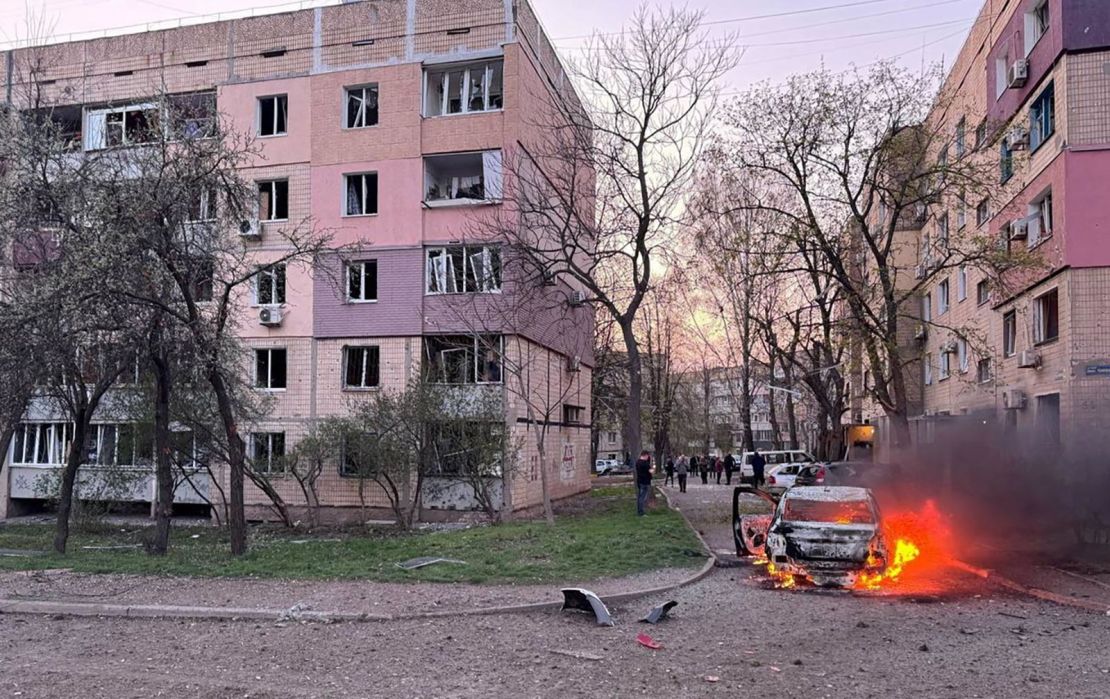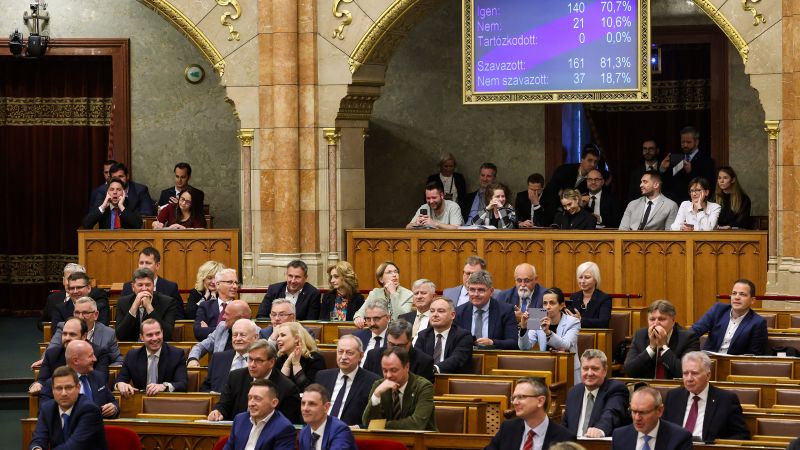CNN
—
When US Ambassador to Ukraine Bridget Brink resigned her post two days ago, she was both under pressure from President Volodymyr Zelensky’s office in Kyiv, and feeling the strain of working for her ultimate boss in Washington, President Donald Trump, according to people who knew her.
At the same time, she was almost three years into a posting in a war zone away from her family – a situation that had also taken an inevitable toll, people said. An “extraordinary performance,” said a State Department spokesperson, paying tribute.
Her sudden departure marks the latest upheaval in Washington’s relations with Kyiv since the Trump administration took office and began a dramatic re-orientation of US policy away from Ukraine and toward Russia.
A former Ukrainian official with a positive view of Brink told CNN the ambassador felt she could no longer do what was right under the new administration.
“She was a very systematic supporter of Ukraine during her three years (in Kyiv). She did everything her position allowed her to do in order for Ukraine to succeed. Her principles would not allow her to do the opposite,” the former official said.
Speaking on condition of anonymity, he said he had communicated with the ambassador following her decision to leave and stressed it was not an emotional decision she had taken, but one that was carefully considered.
“She took a very rational decision about what she can do right now, in a new environment, under new circumstances,” the official said.

Brink began her stint in May 2022, just a few months after Russia’s full-scale invasion of Ukraine. While Kyiv’s key interlocutors were inside the White House – National Security Adviser Jake Sullivan in particular played a central role during the Biden era – Brink maintained a high visibility in country and on social media, promoting the Biden administration’s policy of military and humanitarian aid transfers.
Western ambassadors who worked alongside her in Ukraine spoke of her work ethic and professionalism.
“Tough as nails, almost a machine sometimes, but with a kind of authentic engagement and real kind of fire,” one told CNN approvingly.
That toughness was tested throughout her posting, people who know her told CNN, but was challenged to breaking point by Trump’s return to power.
The new administration has opened multiple channels to Moscow, following three years of diplomatic isolation. It has switched from supporting Ukraine’s “irreversible path” to NATO membership to all but ruling it out completely. And at one point last month, the US even paused all military aid and intelligence-sharing to force Kyiv to commit to talks to end the war.
The difficulties in dealing with such a pronounced shift in US policy came to a head for Brink in two of her social media posts.
The first was a retweet of a posting by Secretary of State Marco Rubio just hours after Zelensky was publicly assailed by Trump and his deputy JD Vance at a meeting in the White House at the end of February.
“Thank you @POTUS for standing up for America in a way that no president has ever had the courage to do before. Thank you for putting America first. America is with you!” read Rubio’s tweet, which Brink separately sent out translated into Ukrainian.
Seventeen hundred people piled into the comments expressing astonishment that someone who had previously been so vocal in support of Ukraine was now apparently cheering the humiliation of its leader.
“Resign and maintain your dignity,” was one of the more polite responses. Many showed considerably less restraint.

The second was a tweet sent just a week ago, following a Russian attack on the southern city of Kryvyi Rih which resulted in the heaviest loss of civilian life in a single strike this year.
“Horrified that tonight a ballistic missile struck near a playground and restaurant in Kryvyi Rih. More than 50 people injured and 16 killed, including six children. This is why the war must end,” she wrote.
Zelensky himself issued a withering response in his nightly address, drawing attention to her failure to name check Russia.
“Such a strong country, such a strong people – and such a weak reaction. They are even afraid to say the word ‘Russian’ when talking about the missile that killed children,” he said.
Brink did mention Russia in subsequent references to the attack, and the former Ukrainian official expresses sympathy over the predicament she found herself in.
“She was part of her system; she had to do it,” he told CNN.
Confirming Brink’s departure to reporters on Thursday, State Department spokesperson Tammy Bruce ducked a suggestion the ambassador had been expressly instructed to reduce public references to Russia, saying she was “not aware of anything like that,” adding that she “wouldn’t speak to anything regarding … a diplomat and the internal dynamics that might occur.”
CNN has been unable to contact Brink for comment.
It was not just relations with her own government that deteriorated as the Trump team took over at the White House, people who know her say. Relations with Zelensky’s office had also long since become difficult.

The Ukrainian president’s office had grown ever more frustrated by what it saw as the Biden administration’s excessive caution over transfer of weapons such as longer-range tactical missiles known as ATACMs, or F-16 fighter jets, and as the ranking US official in Ukraine, she often bore the brunt, people who knew her said. Her relationship with Zelensky’s chief of staff, Andriy Yermak, was particularly strained.
In addition, she advocated hard for the introduction of anti-corruption measures and reforms aimed at increasing transparency. Back home, these were seen as crucial in winning round skeptics in Congress reluctant to approve Ukraine spending bills for fear the money would be syphoned off. In Kyiv, says Andy Hunder of the American Chamber of Commerce, it made her unpopular.
“She’s been very good for the business community in Ukraine … with a focus on the shadow economy … but (too often) there wasn’t the political will to do anything about it,” Hunder says.
A former ambassador from Europe who was in Kyiv at the same time as Brink is more blunt.
“She never sugar-coated things … she was always very clear with them as to the kind of standards against which they would be met in Washington … and I think that kind of pissed them off.”
Hunder says he believes by the end Brink was simply exhausted from the political pressures from both governments she had to deal with.
The former Ukrainian official who spoke to CNN in support of Brink was clear her departure was bad news.
“We were lucky, we had a great supporter. Right now, we have uncertainty,” he said.


























